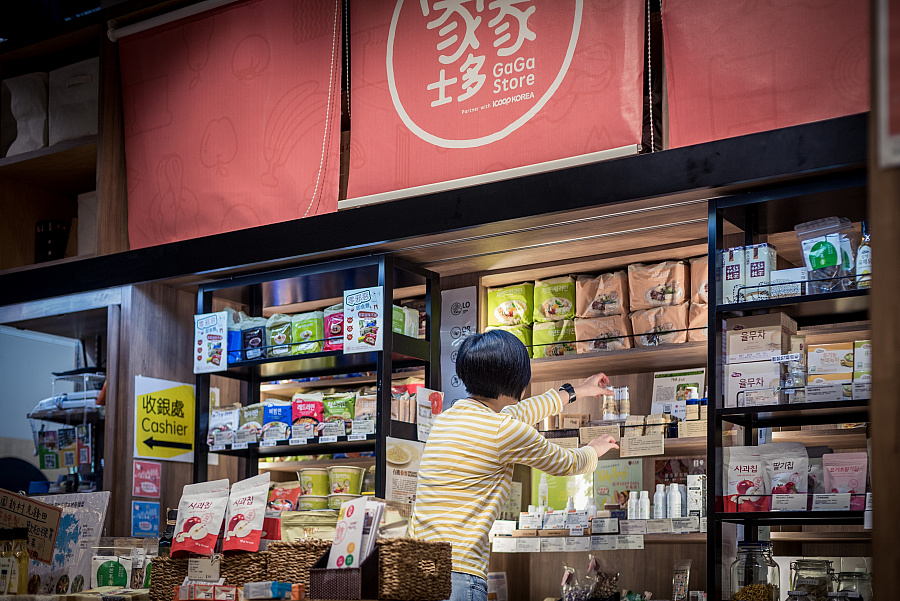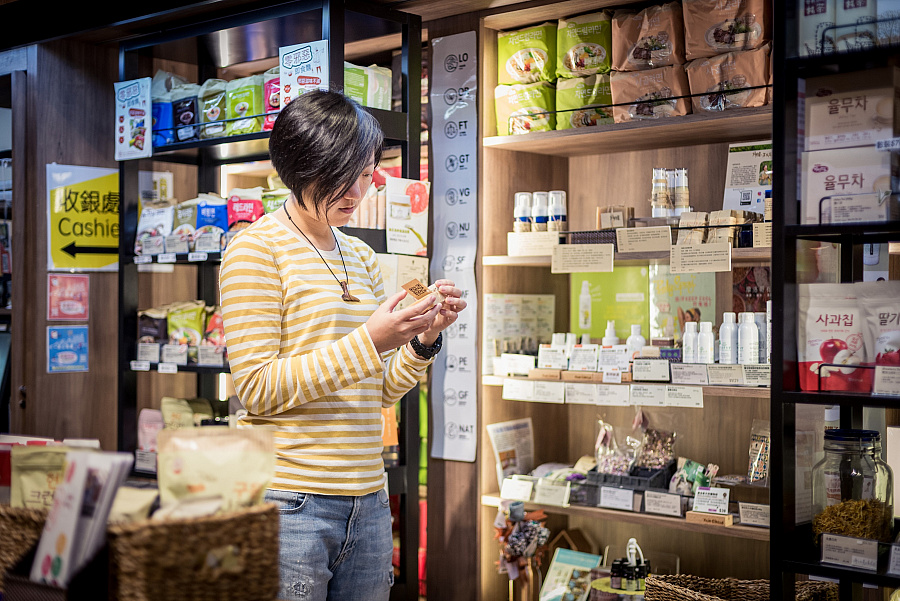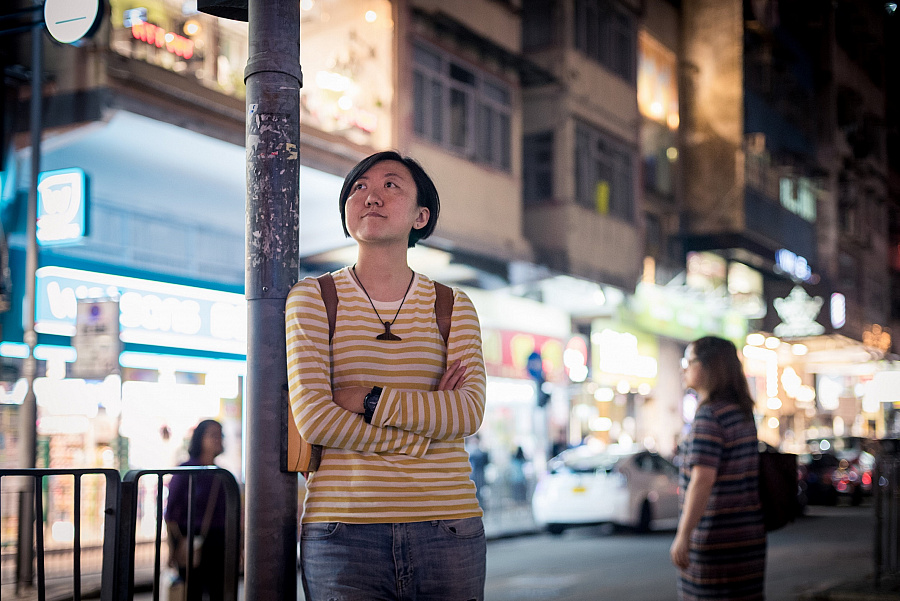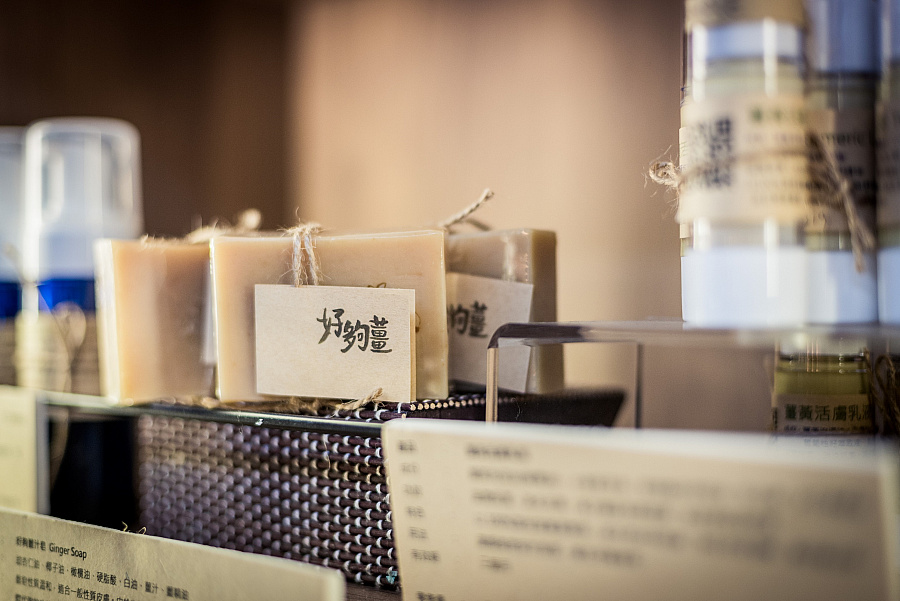In recent years, Hong Kong has seen the emergence of young farmers who tend to the city's farmlands and revitalize its agriculture. The media often highlight how these young farmers gave up their full-time jobs to take care of their farmland, but are there more nuanced stories behind?
Across the café table one evening, the short-haired Teresa Tsui Wai-shan sits across me, not to talk about eating, but to talk about the source of food. For the last two years, she has been involved in agriculture and co-founded the online shop Very Ginger. As the name suggests, the shop specializes in the sales of local ginger produce. "I don't see myself as a contributor to Hong Kong's agriculture. I see myself more as a participant. Agriculture is not just about farming, there are many other roles in terms of production and supply. My role is to help turn farm produces into other products that could be packaged, marketed and sold." Teresa's answer helps me understand how, with the right role, agriculture is not as distant as it sounds.
Teresa, 34 year-old, first came into contact with agriculture seven years ago, when she began working for The Conservancy Association, a green group focused on environmental protection and cultural heritage. As part of her work in land rehabilitation, she visited the vegetable and paddy fields in Long Valley, a well-known wetland and bird haven. Teresa also chatted with the farmers and observed their arduous work and harvest. She was reminded of the intimate relationship between agriculture and cooking, one of her long-time hobbies. As a child, she already enjoyed crafting dishes and sourcing food produce from wet markets.
“The people of Hong Kong have long accustomed to purchasing imported food products. The idea of local agriculture, harvesting and sales at local markets seem to be beyond our imagination. In 2015, I quit my job and went on a working holiday in Australia. I stayed for half a year and volunteered for different farms and families, learning how they made a living from agriculture. Some families sold processed produces from local farms for a living. One vegan family even taught me how to make bean curd and fermented vegetables."
The half-year quest in Australian agriculture inspired Teresa to explore more possibilities in life. Half in jest but half in earnest, Teresa says that she brought a "seed" back to Hong Kong. The seed is the ideal for self-sufficiency in food produce and business.
The Ginger of Lai Chi Wo
In 2013, two leading environmentalists Lam Chiu-ying and Ng Cho-nam, worked with the residents to revitalize the agriculture and houses of an ancient Hakka village Lai Chi Wo. Lam was Director of the Hong Kong Observatory before retiring from the civil service. Ng is an associate professor in the University of Hong Kong’s Geography Department. Their hard work yielded a large amount of farm produces that required processing, packaging and sales. In 2016, a friend introduced Teresa to the Lai Chi Wo project, and she was given the opportunity to found "Very Ginger" with seven fellow partners.
In the first year of their revitalisation project, farmers at Lai Chi Wo harvested 700-1000 kilograms worth of ginger. The ginger were planted at the start of the year, and harvested ten months later. During harvest, Teresa and her friends came to the village for the set-up to dry the ginger and shred them into powder. The half-processed ginger powder could be made into "yellow ginger warm tea" which helps expel cold. After processing, Teresa would then package the products and market them on social media.
During that first year, Teresa and her friends learned along the way. When the team finally sat down to review their work, some team members found a new interest in brewing soy sauce, while others wanted to explore further uses of yellow ginger. One of the team members began collecting herbs in Lai Chi Wo, experimenting with an Indian-flavored ginger tea. "One of our team members even experimented with yellow ginger in cosmetics. Yellow ginger can give color and helps with whitening ," explains Teresa.
From curry to cosmetics, Very Ginger has expanded the possibilities of ginger use. Not only does a pack of ginger contain the practice of self-sufficiency by Hong Kong's youths, it also offers a link to a better understanding of Hong Kong's agriculture and farming villages. "Usually, our customers purchase the ginger tea to expel cold. They trust that we do not use any insecticides in our production process. When we sell our products in local markets, people are often surprised to find that this village called Lai Chi Wo is still cultivating ginger. Not only does our ginger powder address customers' needs, it also enables them to have a better grasp of Hong Kong's agriculture."
Processing Food is like Raising a Pet
Yet, Very Ginger remains a side project. After all, ginger could only be harvested once every ten months in Lai Chi Wo, which makes it difficult to maintain a steady business.
"But I'm someone who enjoys a slower pace. Perhaps, I could maintain a few more side projects in a few years' time," Teresa explains. She shows me photos of pickled and fermented radish, vegetables and cheese in her smartphone. Indeed, Teresa's interests are tightly bound with food products. For her, food processing is comparable to raising pets. Both processes take time to cultivate and learn.
"It takes time to observe nuanced changes in the fermenting process. For example, if I add probiotics into the food produce, they will give off bubbles which are actually carbon dioxide." Teresa recalls that she once left a yeast dough in her own car in Australia. Because of the active fermenting process, she came back to find that the dough exploded. The whole compartment was scattered with dough.
As time passes by, Teresa's fridge is filled with bottles of pickled vegetables. Despite her family's protest, Teresa sees these bottles as a healthy alternative to the pre-packaged food in supermarkets. She also enjoys sharing what she knows occasionally in community centers.
A self-sufficient lifestyle reminds one of the passing of time. Time passes with farming, with processing, and with exploring the many possibilities of food. Perhaps, this is the unique patience and flavor of Teresa's lifestyle.
What do you like most about Hong Kong?
I like the people of Hong Kong. There are quite a few people who act on their ideals to help build the city they want to see. The city used to rely more on NGOs and their advocacy, but people increasingly effect small changes by themselves, acting on what they see as right.
What do you dislike the most about Hong Kong?
Hong Kong lacks a space for quiet reflection. The home is not ideal, and the café is a space of consumption. I think a quiet space is essential for people to re-imagine the possibilities of life. Without it, we may become inured to everyday life.
How does Hong Kong have to do to be sustainable?
If everyone could care for their community, cherish its unique bonding, and effect changes based on their ideas, then Hong Kong could become sustainable.






